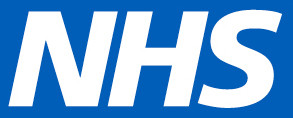Case study: Barts Health NHS Foundation Trust
Overview of pilot
The two teams used in the pilot were both outpatient teams based at the Royal London Hospital and Whipps Cross Hospital respectively. These teams have a non-clinical role within a clinical environment and so have a unique perspective of working within the NHS. The majority of the staff/direct reports taking part in the pilot were below band 4, and the managers between band 5 and 7. This group of staff have been with the Trust for many years, generally with little promotion or development.
Implementation process
Following an analysis of how to prepare for and resource the pilot, the following key actions were identified:
- Delivery of a programme for training on holding effective and challenging conversations
- Localisation of MPCT materials to align with language and behaviour rating colour schemes being used at the Trust
- Work on how to capture key talent information as well as identified development opportunities
Initial briefing sessions were also held with all participants to ensure they knew what to expect and the rationale behind the pilot. Considering operational difficulties with having all staff at the briefings slide packs were produced to ensure that key messages could be cascaded as necessary.
As a new organisation, many of the Barts Health policies/frameworks are either new or still in the process of being implemented. In particular, our appraisal and performance review framework was only introduced in April and this is still being embedded. One of our pilot groups had already undertaken their appraisals using the new process, which incorporates a section on potential, so they already had a level of familiarity with the process and so found the concept of a maximising potential conversation easier to understand.
In comparison, another pilot group were yet to undertake their appraisals and so had a combined appraisal/maximising potential conversation. They needed a little more help to get to grips with the overarching appraisal process and its links to talent/potential. This meant that the talent portion of their conversations was much shorter than expected, lasting roughly 15 minutes.
Therefore, we would strongly recommend an embedded performance framework be in place before the MPCs are held and a separate meeting for the MPCs is scheduled rather than be a part of the appraisal discussion so that focus from the potential element is not lost.
What worked well?
We developed a briefing pack providing an overview of the pilot and talent management generally in order to provide background information to the pilot groups and to enhance their understanding of their role in the process. Additionally we ran ‘Effective Conversations Workshops’ for managers and so produced a slide pack to complement the sessions. Both sets of materials were well received and understood by pilot groups.
The briefings were short, informative sessions lasting no longer than an hour. They aimed to explain the purpose of the pilot, the MPCT and the links with the Trust’s existing appraisal processes and values and behaviours. These were well received sessions.
The ‘Effective Conversations Workshops’ were just for those managers undertaking the MPC and aimed to cover a broad range of ideas relevant to holding potentially difficult conversations such as coaching skills, feedback methods, Johari window, Support/Challenge Model, reframing, the impacts of belief and the CLEAR model and SPEAK model.
Managers responded incredibly well to the ‘Effective Conversations Workshops’ as they cover a range of fundamental tools which has application to other situations and would be of use on a daily basis. If we were to run the workshops in future, we would like to extend them to a full day and include role play exercises for managers to practice the skills from the session.
When asked if other support could have been provided, both managers/supervisors and staff said they were happy with what they have been provided with and could not think of anything else.
What worked less well / ideas for improvement?
The tool was very well received by the pilot groups as it is as a framework to have a quality conversation about potential. A key element of the tool which was commented upon positively was the appendix featuring the bank of questions which could perhaps be expanded upon further. One suggestion for improvement was to include more guidance for staff on how to prepare for their meeting so that it was a 2-way conversation not just led by the manager – for example suggestions of feedback/evidence to bring along, guidance on how to receive feedback, etc.
From an organisational point of view, we would like the tool to be an element of a more end-to-end process which is able to inform us, as a large Trust, of our existing talent and identify critical roles and talent pools from a more strategic perspective. To achieve this, the tool would need to result in some kind of data capture which could be collated centrally and provide an accurate picture of the location of talent across the Trust – i.e. something with a similar intention to a 9-box grid. This would therefore require some form of calibration to take place to ensure consistency.
Through the course of the pilot, it is clear that staff should have MPC conversations as part of the overall appraisal cycle, although higher quality MPC conversations happened when separated from the actual appraisal conversations. Staff also expressed a preference that the themes of the MPC conversation be follow-up regularly during 1:1s, ongoing discussions, etc.
It is important that the MPC and tool sits alongside existing frameworks such as appraisal, learning and development and reward and recognition mechanisms and that clear links are made between these as part of a concerted, genuine effort towards a culture of nurturing talent.
Staff also suggested that real life case studies be used to promote the benefits of having an MPC conversation and using the MPCT. This could focus on staff who had progressed within their roles or experienced unique development that would not have otherwise happened without a conversation.
Additional suggestions from the pilot groups included training workshops and incorporating the concept into objectives.


Please sign in or register to make a comment.